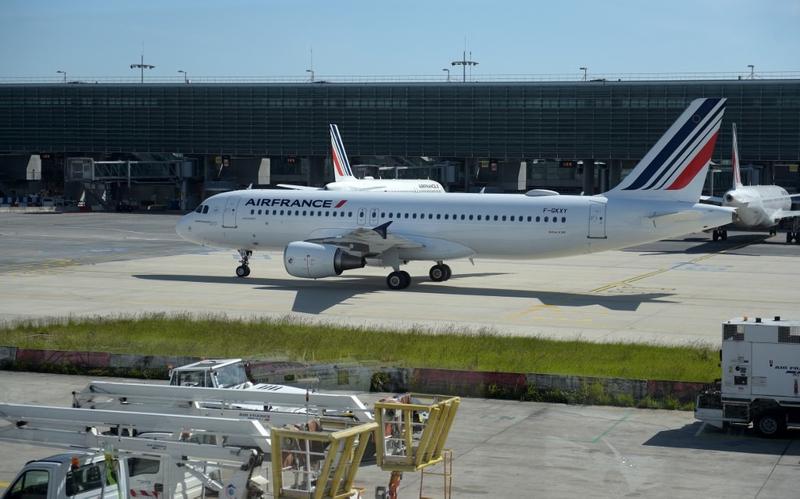 An Aif France Airbus A320 moves on the tarmac at the Paris-Charles de Gaulle airport in Roissy-en-France, on May 12, 2020. (PHOTO / AFP)
An Aif France Airbus A320 moves on the tarmac at the Paris-Charles de Gaulle airport in Roissy-en-France, on May 12, 2020. (PHOTO / AFP)
European Union nations agreed on Thursday a reform of the bloc's air traffic management aimed at cutting emissions, reducing costs for hard-hit airlines, and improving safety.
The reform, known as Single European Sky, includes a variety of initiatives, such as beefing up the role of regulator Eurocontrol in coordinating and optimizing air traffic flows.
The European Commission had suggested such a move in September, saying carbon dioxide emissions from aviation could be cut by up to 10 percent by making flight paths more direct and reducing delays due to congested airspace.
The European Commission had suggested such a move in September, saying carbon dioxide emissions from aviation could be cut by up to 10 percent by making flight paths more direct and reducing delays due to congested airspace
ALSO READ: EU move will harm shipping sector's climate fight
A more efficient system could also increase flight capacity and help an aviation industry that has been hammered by the plunge in travel due to the COVID-19 pandemic.
"No sector has suffered more from the COVID crisis than aviation. It is therefore crucial that the reforms be based on thorough analysis, and that they do not increase costs for airlines, air navigation service providers or any other stakeholders," Pedro Nuno Santos, Portuguese Minister for Infrastructure and Housing, said in a statement.
Meeting in Luxembourg for the first time since December 2019 due to the pandemic, EU transport ministers said countries could vary air navigation charges for destinations within their borders to help improve the environmental efficiency of flights.
READ MORE: EU’s climate efforts face hurdles
Negotiations on a final text will now start between the European Parliament and the EU's 27 countries before it can enter into force.
The Commission proposed a revision of airspace rules in 2013, but EU governments failed to reach an agreement as Britain and Spain argued over Gibraltar airport.


